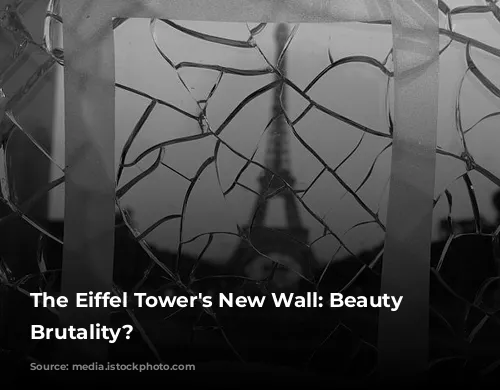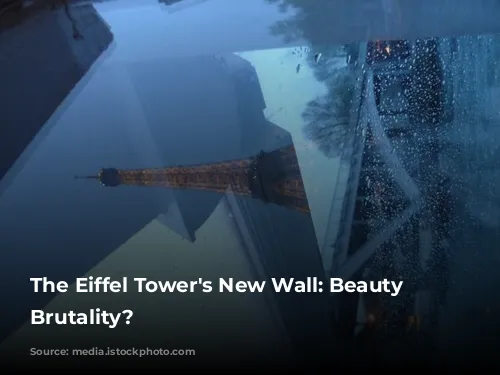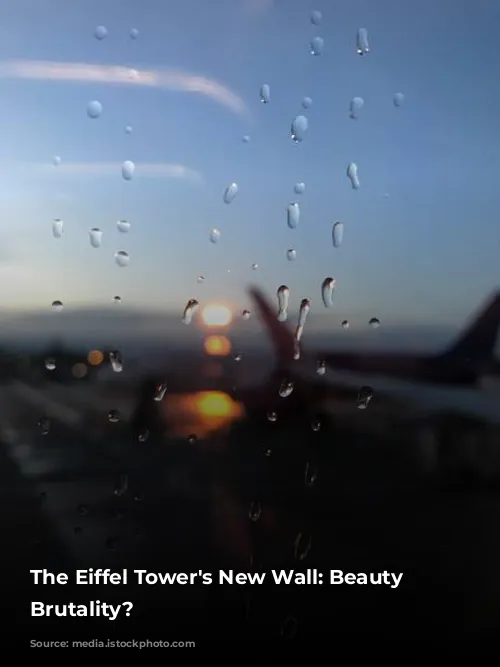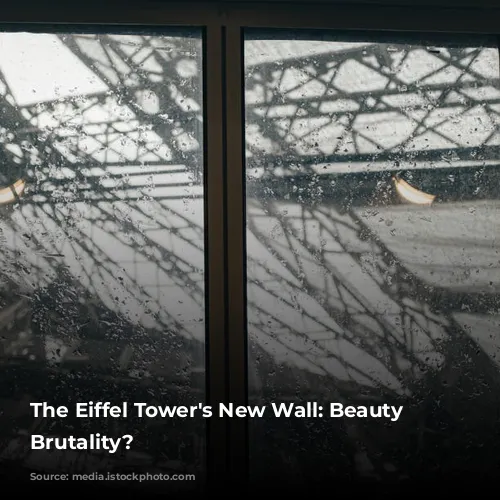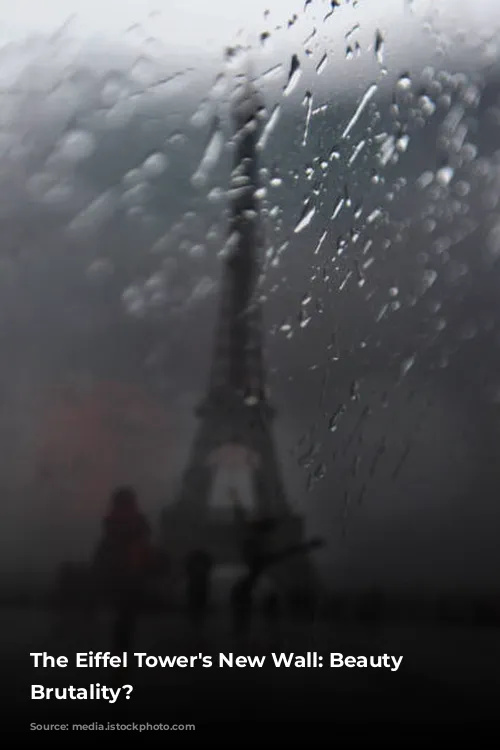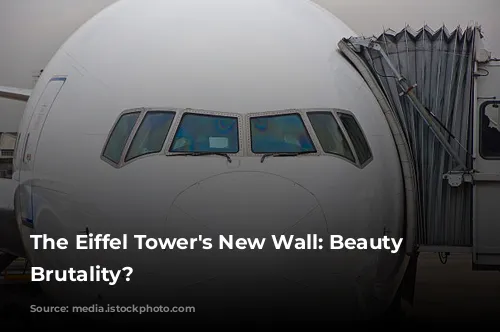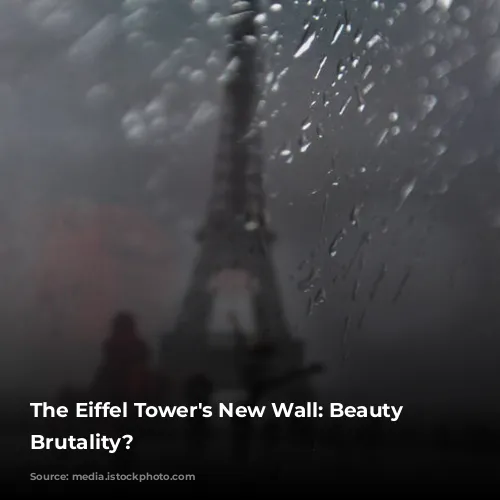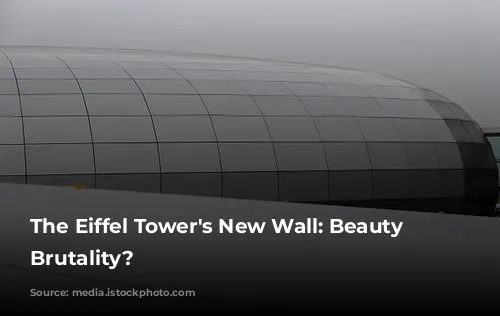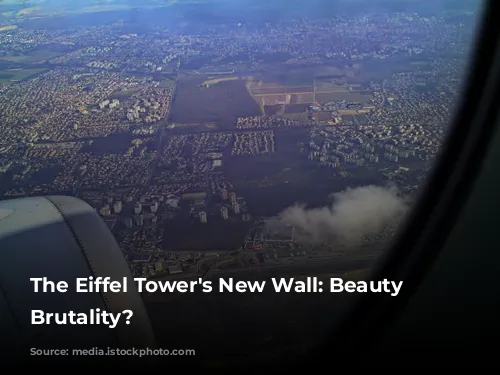Paris, the City of Lights, is facing a stark dilemma. Terrorism, a grim reality in recent times, has cast a long shadow on its iconic landmarks. To safeguard the Eiffel Tower, a symbol of France, the authorities have decided to erect a bulletproof glass enclosure around its base. This controversial measure, however, is facing widespread opposition, sparking heated debates about security versus aesthetics and freedom versus fear.
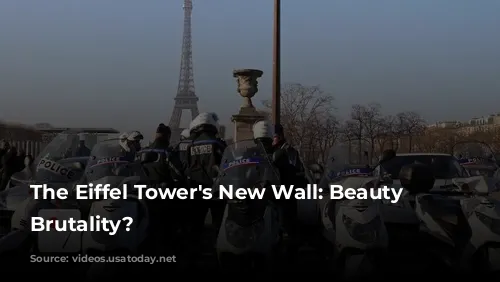
A Concrete Barrier Against Terror
The Eiffel Tower, a towering monument that draws millions of visitors annually, has become a prime target for terrorists. The recent terrorist attacks in Paris, which claimed hundreds of lives, have shaken the city, leaving its residents and tourists on edge.
To deter potential threats, the French government has proposed a $20 million project to construct a glass barrier around the Eiffel Tower’s base. This barrier, measuring 8.2 feet in height, is designed to protect the monument from potential vehicle attacks. While authorities argue that the glass wall will ensure visibility and prevent access to the tower, critics decry its aesthetic impact.
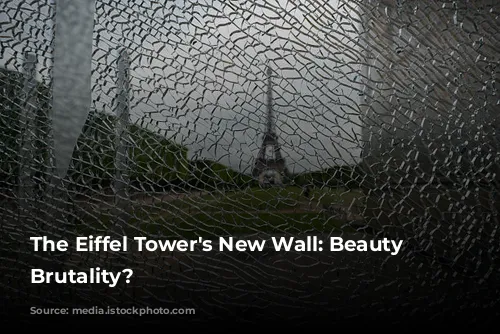
Aesthetics Versus Security: A Clash of Ideals
Many Parisians and tourists are deeply concerned about the visual impact of the glass wall. They believe it will mar the beauty of the Eiffel Tower, turning it into a fortress, a jarring sight in the heart of a city known for its elegance and charm.
“It’s pure madness!” exclaimed Bernard Thiebaut, a retired engineer. “It’s not just a physical barrier, it’s also a philosophical and a psychological barrier.” He fears that the wall signifies a shift in the French way of life, marking a move towards increased security and decreased freedom.
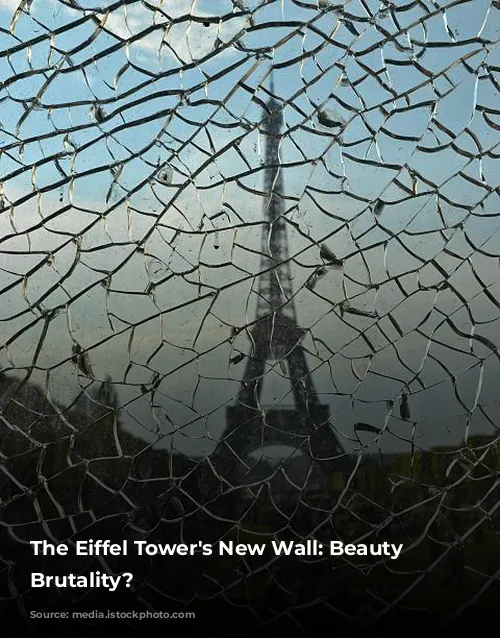
Balancing Safety and Aesthetics
Deputy Mayor Jean-Francois Martins, defending the project, emphasizes the seriousness of the terror threat and the need for robust security measures in the face of the growing danger. He argues that the glass wall, while offering protection, will maintain the transparency of the structure, allowing visitors to enjoy the view of the monument.
Martins’ argument, however, fails to convince many. They believe that the glass wall, while preventing physical access, will not necessarily deter a determined attacker. Moreover, they express concerns that the enhanced security measures might ultimately discourage tourism, impacting the city’s economy.
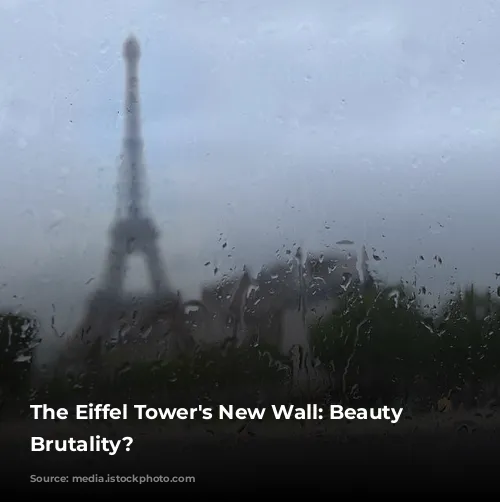
A Glimpse into a Fearful Future?
The Eiffel Tower is not alone in facing the threat of terrorism. Other iconic landmarks worldwide are also taking similar security measures, raising concerns about a growing trend of fortification in the name of security.
The debate surrounding the Eiffel Tower’s glass wall reflects a complex interplay of security concerns, aesthetics, and freedom. It highlights the difficult task of balancing safety with the preservation of cultural heritage and the enjoyment of public spaces in a world increasingly threatened by terrorism.
